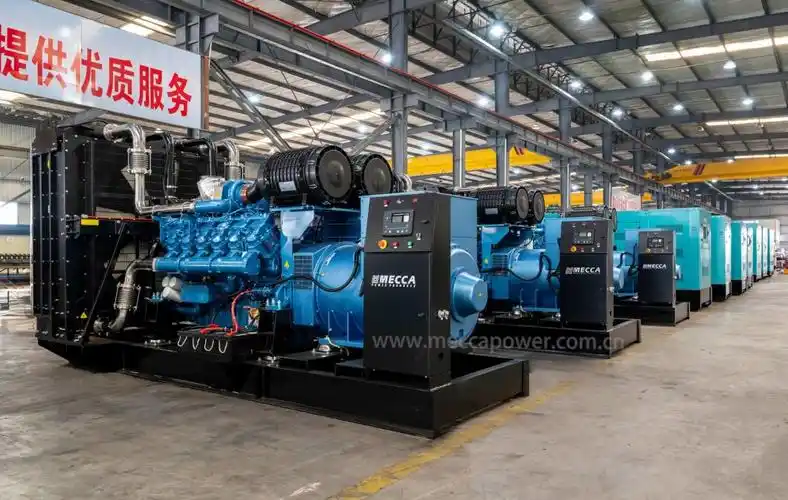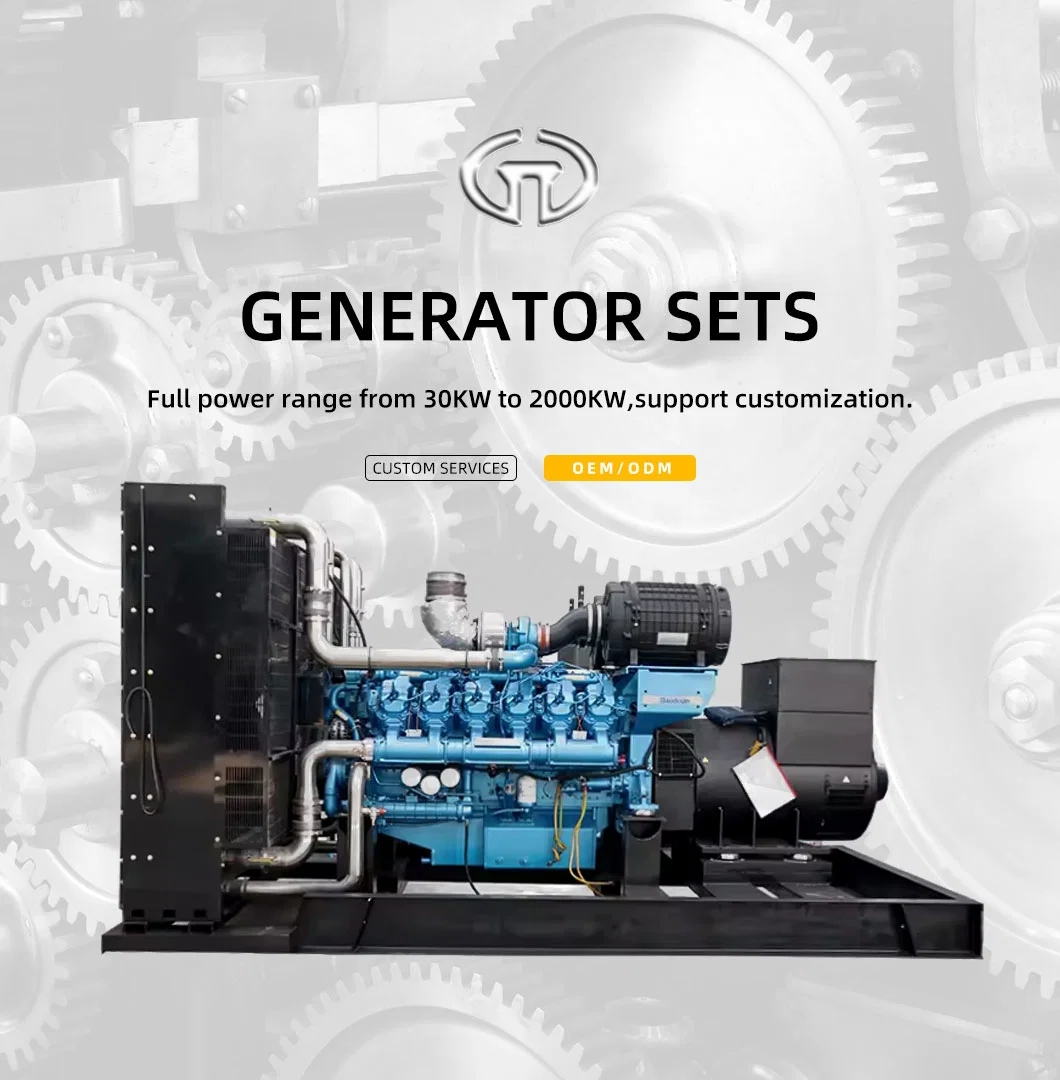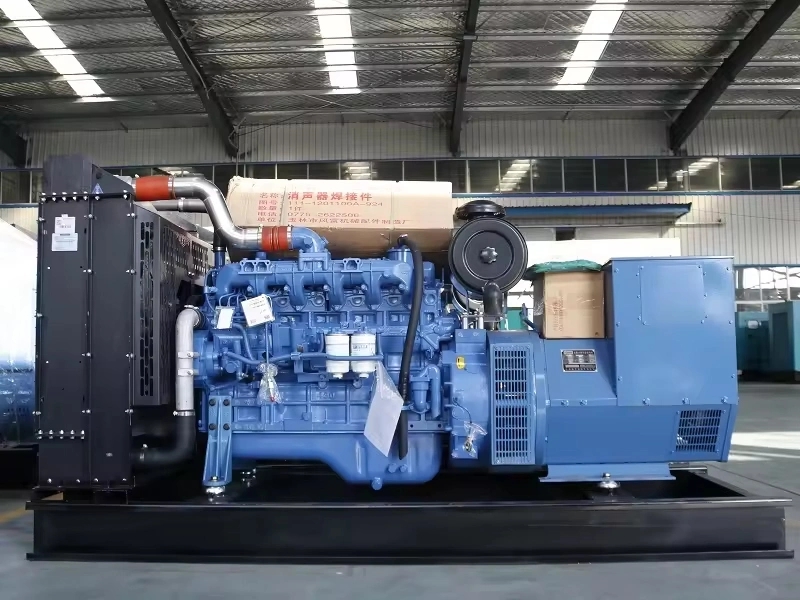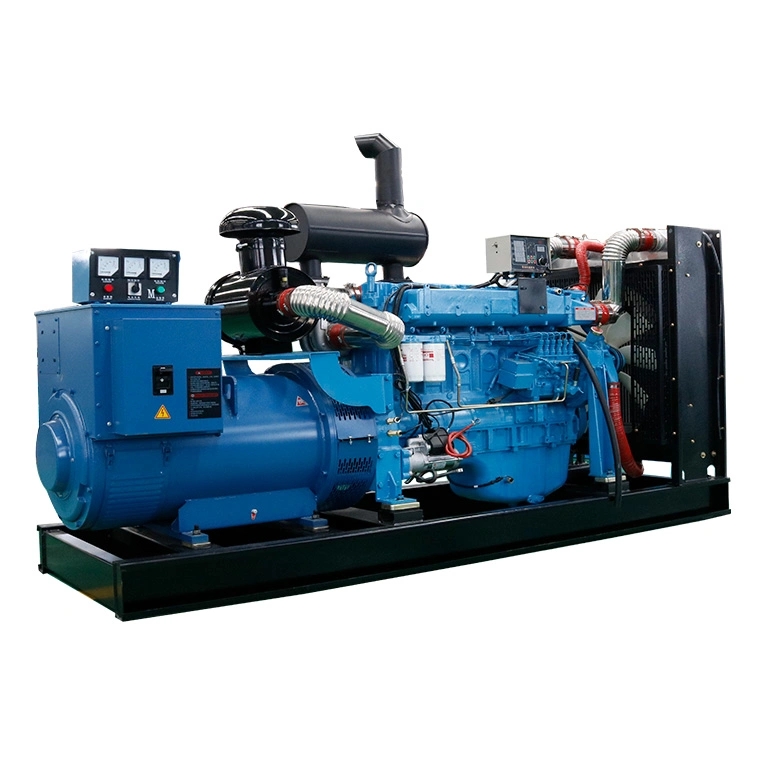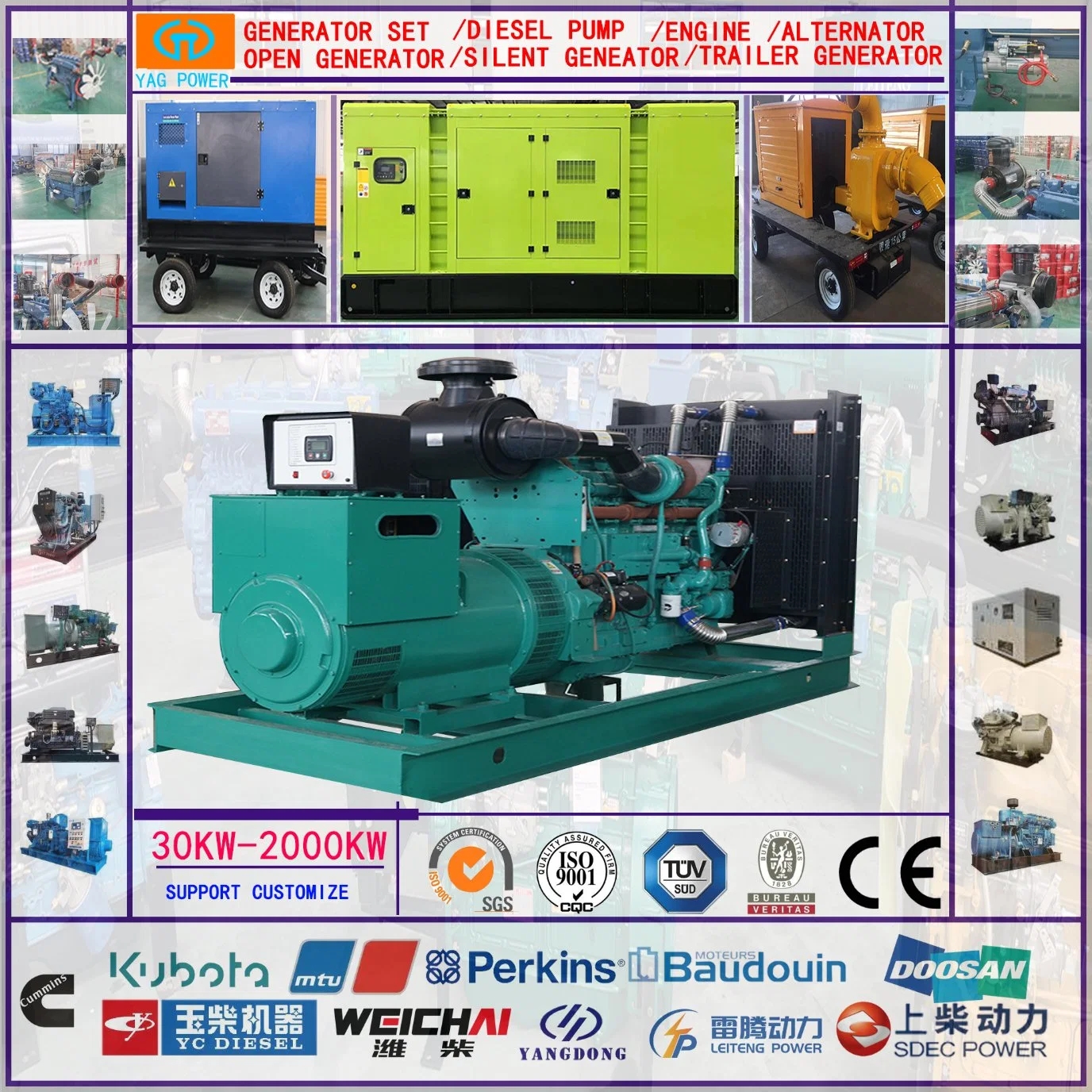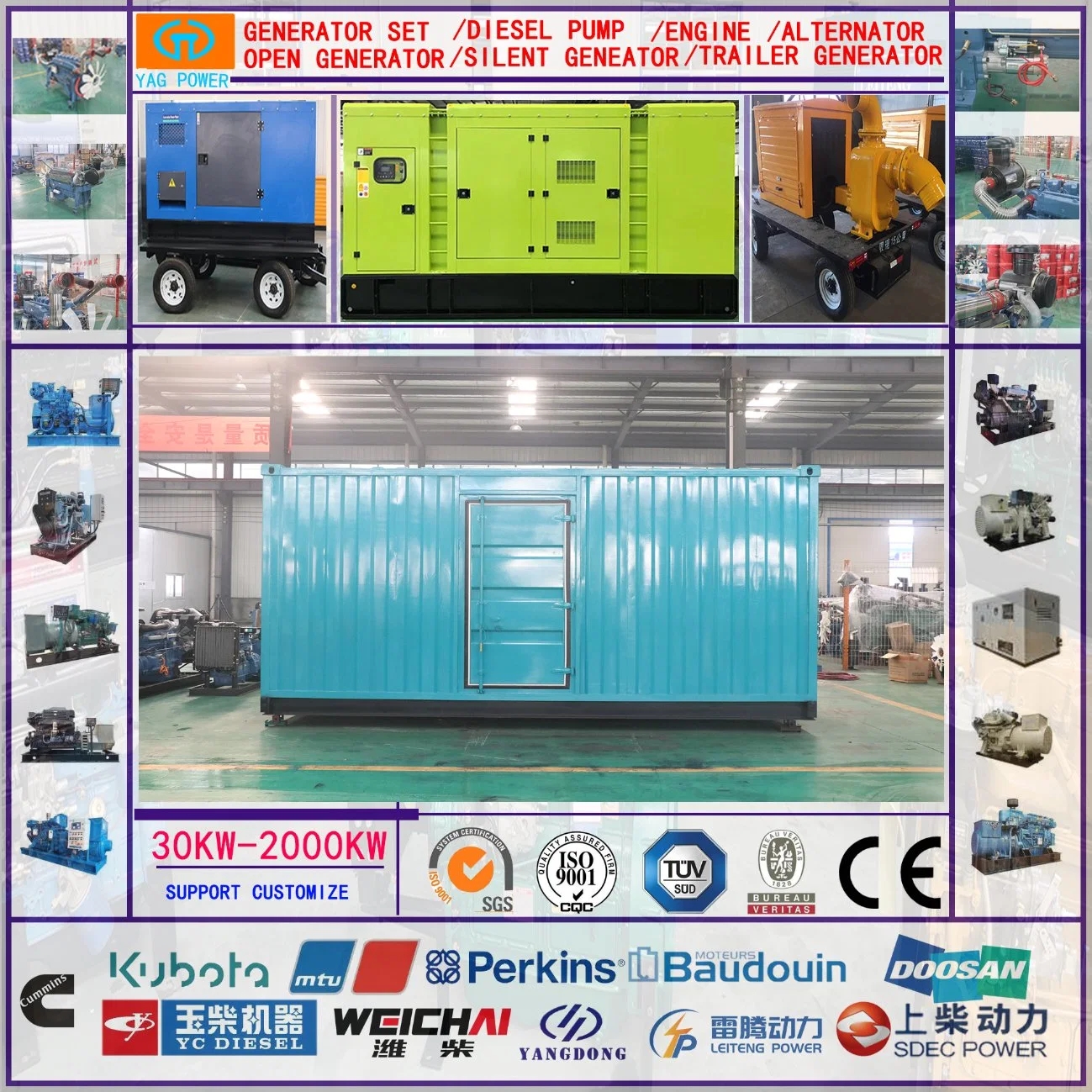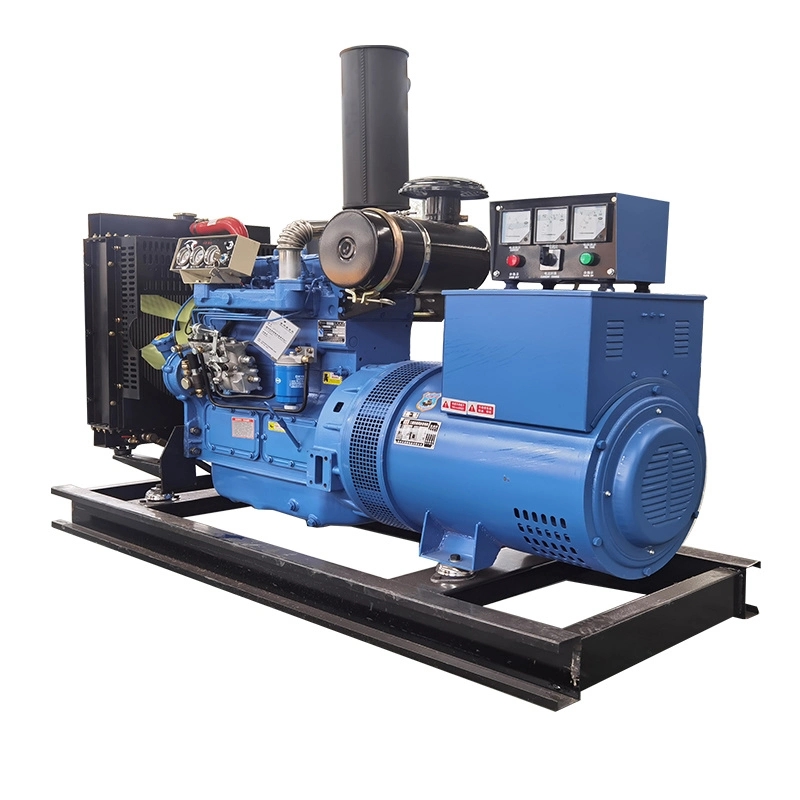Table of Contents
ToggleUnderstanding Diesel Generators
When it comes to power generation, diesel generators are often the go-to choice for many businesses and homeowners alike. But what exactly is a diesel generator? Simply put, it’s a machine that converts diesel fuel into electrical energy. They are known for their durability and efficiency, making them ideal for both standby and continuous power applications. But why should you consider a diesel generator over other types? Let’s dive into the benefits.
What is a Diesel Generator?
A diesel generator consists of a diesel engine coupled with an electric generator (alternator). The engine burns diesel fuel to produce mechanical energy, which is then converted into electrical energy. This process is efficient and reliable, making diesel generators a popular choice for various applications, from construction sites to hospitals.
Benefits of Diesel Generators
Diesel generators come with a host of advantages. They are generally more fuel-efficient than their gasoline counterparts, which means you can save money in the long run. They also have a longer lifespan, often lasting for decades with proper maintenance. Plus, they can handle heavy loads, making them suitable for industrial applications.
- Fuel Efficiency: Diesel engines are designed to be more fuel-efficient than gasoline engines. This means you can run your generator longer on a single tank of fuel, which is especially important during extended power outages or in remote locations where refueling may be difficult.
- Durability: Diesel generators are built to withstand harsh conditions. They are often constructed with heavy-duty components that can handle the rigors of continuous operation. This durability translates to a longer lifespan, which can save you money on replacements and repairs.
- High Power Output: A 200kW diesel generator can provide substantial power, making it suitable for a variety of applications, from powering large machinery to serving as a backup for commercial buildings. This high output is particularly beneficial in industrial settings where power demands can fluctuate significantly.
- Lower Emissions: Modern diesel generators are designed to meet stringent emissions standards. While diesel engines traditionally had a reputation for being polluters, advancements in technology have led to cleaner-burning engines that produce fewer emissions.
- Cost-Effectiveness: While the initial investment in a diesel generator may be higher than that of a gasoline generator, the long-term savings in fuel efficiency and maintenance can make it a more cost-effective choice over time.
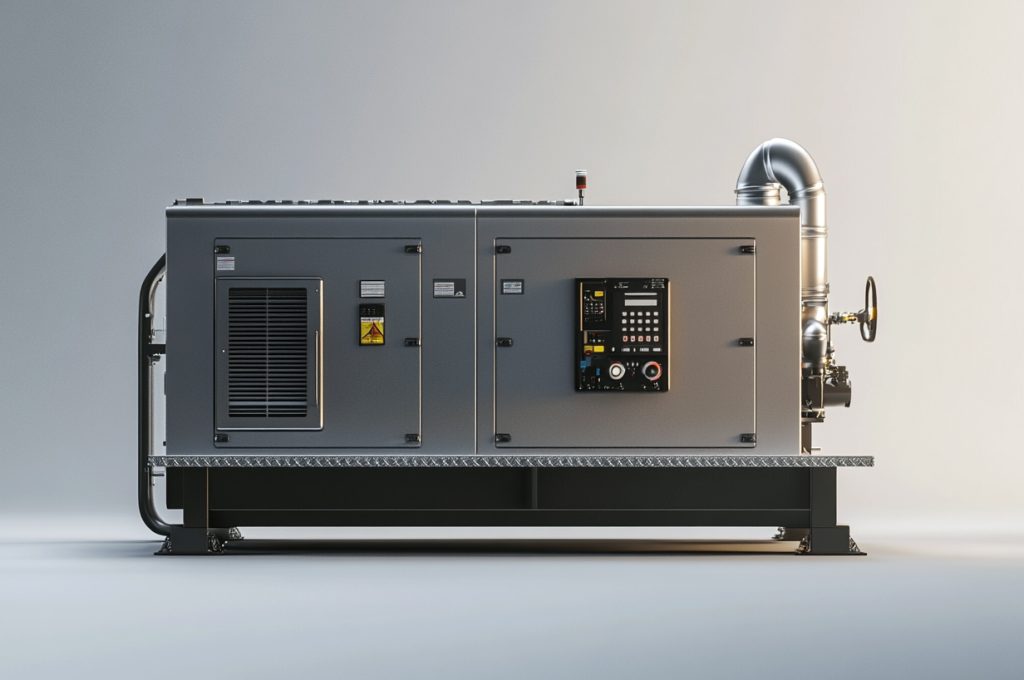
Assessing Your Power Needs
Before you rush out to buy a 200kW diesel generator, it’s crucial to assess your power needs. This step is often overlooked but is essential for ensuring you choose the right generator for your specific requirements.
Calculating Your Load Requirements
Start by calculating the total wattage of all the devices you plan to power. This includes everything from lights and computers to heavy machinery. It’s important to consider both the starting and running wattage of your equipment. The starting wattage is typically higher, so make sure to account for that in your calculations.
- Identify Your Equipment: Make a list of all the equipment you plan to run on the generator. This could include HVAC systems, refrigerators, computers, and any other electrical devices.
- Check Wattage Ratings: Look for the wattage ratings on the equipment. This information is usually found on a label or in the user manual. If you can’t find it, a quick online search can often yield the necessary information.
- Calculate Total Wattage: Add up the running wattage of all devices. Then, add the starting wattage for devices that require more power to start up. This will give you a clear picture of your total power needs.
Continuous vs. Standby Power
Are you looking for a generator for continuous use or just for backup during outages? Continuous power generators are designed to run for long periods, while standby generators kick in during power failures. Understanding your needs will help you make a more informed decision.
- Continuous Power: If you need a generator that can run for extended periods, such as in a remote location or for a business that cannot afford downtime, a continuous power generator is the way to go. These generators are built for durability and can handle heavy loads for long durations.
- Standby Power: If your primary concern is backup power during outages, a standby generator may be sufficient. These generators automatically kick in when the power goes out, providing immediate relief without the need for manual intervention.
Key Features to Consider
Now that you have a grasp on your power needs, let’s talk about the key features to look for in a 200kW diesel generator. Not all generators are created equal, and certain features can make a significant difference in performance and usability.
Fuel Efficiency
Fuel efficiency is a major consideration. A generator that consumes less fuel will save you money over time. Look for models that offer advanced fuel management systems or those that are designed for optimal fuel consumption.
- Fuel Tank Size: Consider the size of the fuel tank. A larger tank means longer run times between refueling, which is especially important for continuous power applications.
- Fuel Consumption Rate: Check the manufacturer’s specifications for fuel consumption rates. This will give you an idea of how much fuel you’ll need to keep on hand.
Noise Levels
Noise can be a significant factor, especially if you plan to use the generator in a residential area or near sensitive equipment. Check the decibel rating of the generator and consider investing in soundproofing options if necessary.
- Decibel Ratings: Look for generators with lower decibel ratings for quieter operation. Many manufacturers provide this information in their specifications.
- Soundproofing Options: If noise is a concern, consider generators that come with soundproofing features or invest in soundproof enclosures.
Portability and Size
Depending on your needs, the size and portability of the generator can be crucial. If you need to move it around frequently, look for a model that is compact and comes with wheels. On the other hand, if it’s going to be stationary, ensure it has a sturdy base and is easy to access for maintenance.
- Weight and Dimensions: Consider the weight and dimensions of the generator. If you plan to transport it, a lighter model with wheels will be more convenient.
- Storage Space: Ensure you have adequate space for the generator, especially if it’s a larger model. Proper ventilation is also essential to prevent overheating.
Evaluating Generator Brands
With so many brands on the market, how do you choose the right one? Reputation and reliability are key factors. Research different brands and read customer reviews to get a sense of their performance and durability.
Reputation and Reliability
Some brands have built a solid reputation over the years for producing reliable generators. Look for brands that are known for their quality and customer service. A good warranty can also be a sign of a manufacturer’s confidence in their product.
- Customer Reviews: Read customer reviews and testimonials to gauge the experiences of other users. This can provide valuable insights into the reliability and performance of different brands.
- Industry Reputation: Research the brand’s history and reputation in the industry. Established brands with a long track record are often a safer bet.
Warranty and Support
A solid warranty can save you a lot of headaches down the line. Make sure to check what the warranty covers and for how long. Additionally, consider the availability of customer support and service centers in your area.
- Warranty Coverage: Look for warranties that cover parts and labor. A longer warranty period is often a sign of a quality product.
- Customer Support: Check the availability of customer support. A responsive support team can make a significant difference if you encounter issues with your generator.
Budgeting for Your Generator
Let’s talk money. Budgeting for a 200kW diesel generator involves more than just the initial purchase price. You need to consider ongoing costs, including fuel, maintenance, and potential repairs. Understanding the total cost of ownership will help you make a more informed decision.
Initial Costs vs. Long-Term Savings
While it might be tempting to go for the cheapest option, remember that you often get what you pay for. Investing in a higher-quality generator may cost more upfront but can lead to significant savings in fuel and maintenance costs over time.
- Initial Purchase Price: The first thing you’ll notice is the sticker price. Diesel generators can range widely in cost based on brand, features, and specifications. It’s essential to set a budget that reflects not just the purchase price but also the value you expect from the generator.
- Fuel Costs: Diesel fuel prices can fluctuate, so it’s wise to keep an eye on market trends. Calculate how much fuel you’ll need based on your generator’s consumption rate and your expected usage. This will give you a clearer picture of your long-term fuel expenses.
- Maintenance Costs: Regular maintenance is crucial for keeping your generator in top shape. Factor in the costs of oil changes, filter replacements, and any other routine maintenance tasks. Some manufacturers offer maintenance packages that can help you save money in the long run.
- Repair Costs: Even the best generators can experience issues over time. It’s a good idea to set aside a budget for potential repairs. Research common issues associated with the models you’re considering, and factor those into your overall budget.
Installation and Maintenance
Once you’ve chosen your generator, the next step is installation. This is where many people get stuck. Should you hire a professional or go the DIY route? Let’s break it down.
Professional Installation vs. DIY
If you’re not experienced with electrical systems, it’s usually best to hire a professional. They can ensure that the generator is installed safely and correctly, which can save you from potential issues down the line.
- Safety First: Installing a generator involves working with high-voltage electricity, which can be dangerous if you’re not trained. A professional installer will know the local codes and regulations, ensuring that your installation is compliant and safe.
- Time and Effort: Installing a generator can be a time-consuming process, especially if you’re not familiar with the equipment. Hiring a professional can save you time and effort, allowing you to focus on other important tasks.
- Warranty Considerations: Some manufacturers require professional installation to maintain the warranty. If you choose to install the generator yourself, you may void the warranty, which could lead to costly repairs down the line.
Regular Maintenance Tips
Regular maintenance is key to keeping your generator running smoothly. This includes checking the oil levels, replacing filters, and running the generator periodically to keep it in good working condition. Don’t wait for a power outage to find out your generator isn’t working!
- Create a Maintenance Schedule: Set up a regular maintenance schedule based on the manufacturer’s recommendations. This could include monthly checks, quarterly servicing, and annual overhauls.
- Keep It Clean: Dust and debris can accumulate on your generator, affecting its performance. Regularly clean the exterior and ensure that the air intake is free from obstructions.
- Check Fluid Levels: Regularly check the oil, coolant, and fuel levels. Low fluid levels can lead to overheating and other issues, so it’s essential to keep everything topped up.
- Run the Generator: Even if you don’t need it, run the generator periodically to keep the engine lubricated and the battery charged. This practice can help identify any issues before they become significant problems.
Conclusion: Making the Right Choice
Choosing the right 200kW diesel generator doesn’t have to be overwhelming. By understanding your power needs, evaluating key features, and considering your budget, you can make an informed decision that will serve you well for years to come. Remember, a generator is an investment in your peace of mind, so take the time to choose wisely!
- Do Your Research: Take the time to research different models, brands, and features. The more informed you are, the better your decision will be.
- Consult with Experts: Don’t hesitate to reach out to professionals for advice. They can provide valuable insights based on their experience and expertise.
- Think Long-Term: Consider not just your immediate needs but also your future power requirements. A generator is a long-term investment, so choose one that can grow with you.
- Stay Informed: Keep up with industry trends and advancements in generator technology. This knowledge can help you make better decisions in the future.
In conclusion, selecting a 200kW diesel generator is a significant decision that requires careful consideration. By following the guidelines outlined in this article, you can ensure that you choose a generator that meets your needs, fits your budget, and provides reliable power for years to come. Whether you’re powering a business, a construction site, or your home, the right generator can make all the difference.




